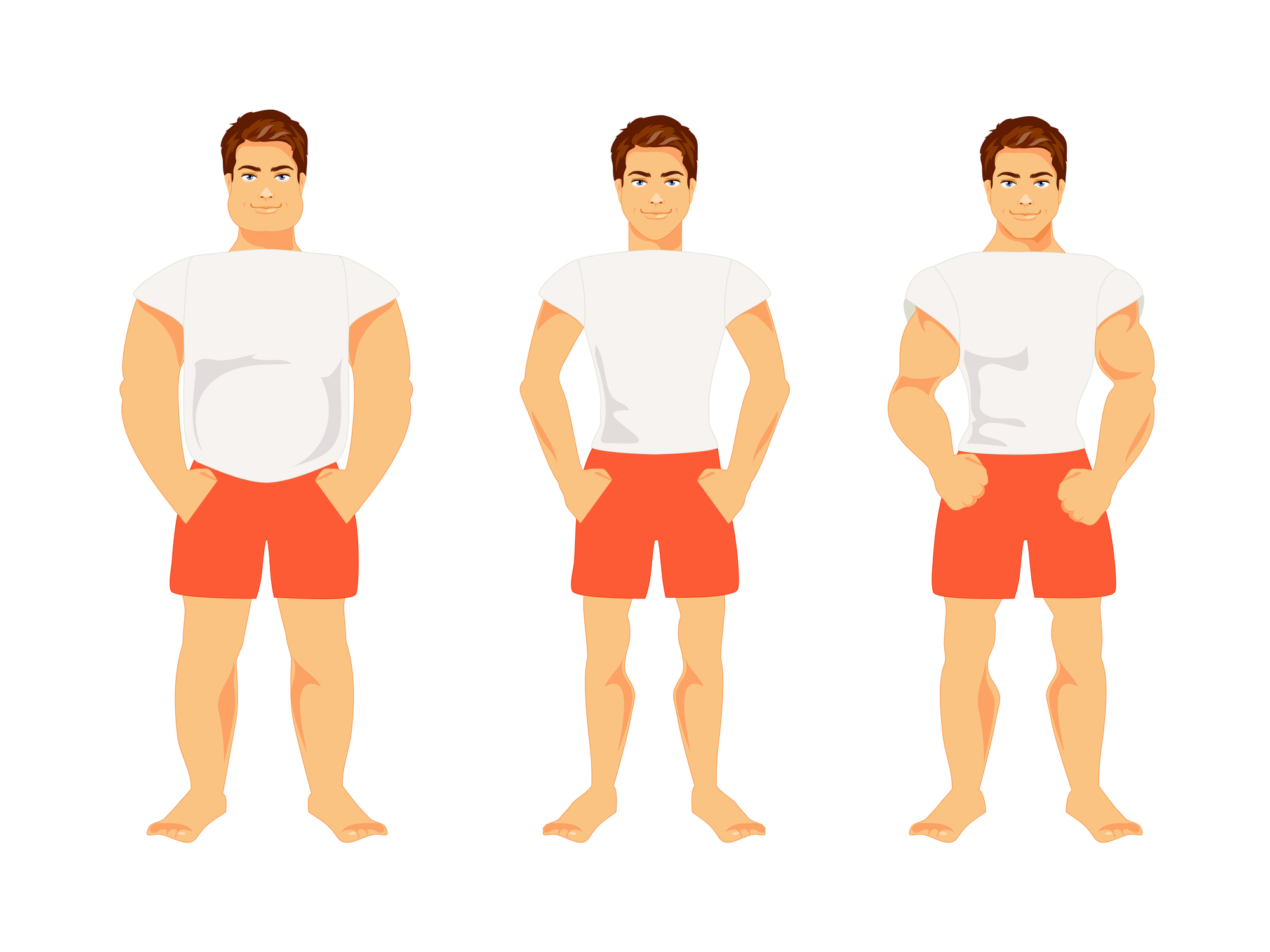Diseñar un programa de entrenamiento para que un atleta llegue a la cima de la competencia es uno de los objetivos principales de los especialistas en rendimiento deportivo. Desde el macrociclo anual del panorama general, hasta el desglose del mesociclo mensual y el microciclo finamente detallado, los perÃodos de descanso deben incluirse en estos planes para evitar el sobreentrenamiento y el posible impacto negativo en el rendimiento.
El sobreentrenamiento ocurre cuando el cuerpo de un atleta no tiene suficiente tiempo para recuperarse. Un atleta sobreentrenado que no está logrando resultados puede incluso verse tentado a dejar de entrenar por completo. El sobreentrenamiento puede ser el culpable si su atleta presenta alguno de los siguientes sÃntomas (1,2):
- frecuencia cardÃaca en reposo elevada
- pérdida de apetito y pérdida de peso
- fatiga crónica, entrenamientos descritos como agotadores
- un aumento de resfriados o infecciones
- sueño inadecuado
- una disminución en el rendimiento o una incapacidad para alcanzar los objetivos de entrenamiento
- falta de entusiasmo, estancamiento psicológico
El descanso y la recuperación inadecuados pueden dar lugar a indemnizaciones y lesiones (1,2). Si comienzan a aparecer signos de sobreentrenamiento, se pueden hacer ajustes a las variables agudas del programa, incluido el volumen, la intensidad, la duración, la frecuencia y / o la selección del ejercicio del entrenamiento (1). Por ejemplo, cuando un atleta experimenta un caso intenso de dolor muscular de aparición tardÃa (DOMS), reducir la intensidad y la duración del entrenamiento o entrenar diferentes grupos musculares durante los dÃas siguientes dará tiempo a los músculos afectados para recuperarse (3).
Incluso entre series y ejercicios, el cuerpo necesita un intervalo de descanso. Dependiendo de los objetivos del ciclo de entrenamiento del atleta, la intensidad del ejercicio y los sistemas de energÃa utilizados, el descanso entre series puede oscilar entre 30 segundos y 5 minutos (1).
Continuo del intervalo de descanso
Estabilización / Fuerza Resistencia: 30-60 segundos
Hipertrofia: 45-90 segundos
Fuerza / potencia máxima: 3-5 minutos
La nutrición adecuada también es parte del proceso de recuperación. Reponerse con suficientes carbohidratos para completar las reservas de glucógeno junto con la proteÃna adecuada para ayudar en la reparación muscular es clave. Para los atletas de fuerza, la recomendación de proteÃnas es entre 1.2-1.7 g / kg de peso corporal por dÃa (4). Para los atletas de resistencia, el objetivo de proteÃnas está entre 1,2 y 1,4 g / kg de peso corporal por dÃa (1,4). Las recomendaciones de carbohidratos para los atletas oscilan entre 6 y 10 g / kg de peso corporal por dÃa, dependiendo de múltiples factores como el gasto energético total, el tipo de actividad, las condiciones ambientales y el sexo (4).
Aunque los intervalos de descanso son importantes entre series, un descanso demasiado largo puede reducir las adaptaciones al entrenamiento y disminuir la actividad neuromuscular (1). Los perÃodos de descanso más prolongados entre sesiones de entrenamiento también pueden resultar en una pérdida de fuerza y ​​habilidades cardiovasculares. El desentrenamiento cardiovascular comienza a ocurrir dentro de los 12 dÃas, con disminuciones observadas en el VO2máx. (2). Las ganancias de fuerza se pierden a un ritmo de disminución mucho más lento y, de hecho, se pueden mantener con tan solo una sesión de entrenamiento por semana durante 12 semanas (2,5).
El descanso es un componente del rompecabezas de entrenamiento que a menudo se pasa por alto. Es una pieza vital que debe incorporarse al plan de entrenamiento de un atleta. La necesidad de un recuperación El perÃodo se aplica tanto al entrenamiento cardiovascular como al de fuerza. Cada atleta responderá de forma única a los estÃmulos del entrenamiento, por lo que es importante estar atento a los signos de sobreentrenamiento y ajustar el plan de entrenamiento para que su rendimiento sea óptimo y sin lesiones.
Referencias
1. Clark M., Lucett S. Sportstraining-Weightloss Essentials of Sports Performance Training. Baltimore, MD: Lippincott Williams & Wilkins; 2010.
2. Powers SK, Howley ET.; Exercise Physiology: Theory and Application to Fitness and Performance. Eighth Ed. New York, NY:McGraw Hill, 2012.
3. Cheung K., Hume, P., Maxwell L. Delayed onset muscle soreness: treatment strategies and performance factors. Sports Medicine, 2003;33(2):145-64.
4. American Dietetic Association. Position of the american dietetic association, dietitians of canada, and the american college of sports medicine: nutrition and athletic performance. Journal of the American Dietetic Association. 2009:514-515.
5. Graves, J. Pollock, M., Leggett, S. et.al. Effect of reduced training frequency on muscular strength. International Journal of Sports Medicine 1988 9:316-319.




![The Causes of Stress: A Breakdown of the Physiology [Guide]](https://sportstraining-weightloss.com/hub/2494739/hubfs/causes-of-stress.jpg?width=723&name=causes-of-stress.jpg)

.jpg?width=330&name=Optima%20Ads_blog3%20(1).jpg)









Shlomo Fishman- NASM CPT
As a NASM-CPT and future PES,
My specialty is focused on endurance athletes, as mentioned above; every athlete responds differently. Personally Iv'e put my athletes through some tough training plans, and the reason why they are able to train for long periods of time, is the recovery. Bad recovery = Bad performance in the gym.
That's all. Make sure your athletes eat, and sleep properly.
Good luck!
wiliiam weiss
I am currently ready to sit for the NASM exam and look forward to a career in PT
Ben
"Though rest intervals are important between sets, too long of a break can reduce the adaptations to training and decrease neuromuscular activity." I bet if Kirk Karworski hadn't waited more than the scientifically-proven 5 minutes between sets during his training he coulda squatted that 1000lbs way more than just 2 times. All those people who actually train to get strong sure don't know how to organize their rest times.
MIchael
Hi, I have over-trained for about 8-9 years consistently (no joke). I am now 30, and since I was about 21 I would train hard almost every day. For a couple years I was training hard 6x/week and one light day. Then I added in one rest day. I would take off 2 or 3 days here and there and a rest week maybe once per year. I did cardio almost every training day for about 45 minutes, which I now realize was way to much; and a lot of it was moderate to high intensity cardio. In the past 2 months my body has completely broken down. I have many nagging muscle injuries and pain. My knees are in great pain as well, one of my major concerns. I recently obtained medical insurance for he first time in about 10 years so I am only now able to get bloodwork/mri's, ect. My blood work came back very good with the only issue being my T was low (this is weird because my energy level, physique, aggression is that of something with High T). It came in at 279. I feel this may be from overtraining. I am going this week to my GP to see the recent test results and if T is still low he is going to prescribe me a Test-supplement such as androgel.
Besides good genetics, my diet is nearly perfect; I take every important vitamin, natural anti-inflammatories, and use supplements to help recovery and protein synthesis. I am 5'8" about 160-165 lbs, very lean, and have a well built physique.
Recently I injured my right Sartorius leg muscle. I took off a week, then resumed exercise but it wouldn't heal. I started PT a few weeks ago and it has helped only a little. I am very disconcerted in general but especially with this injury because I will warm it up, stretch it, and then later the muscle will be very sore and tender. It's like if you don't stretch it, it re-pulls, and if you do-stretch it, it re-pulls.
Last week I threw down my cards and decided to take 2 full weeks off to try and reset my CNS and heal my injuries. Today starts week 2. To be honest my injuries are still prevalent and I feel like doing the most harmless action triggers a pain response from some of muscle injuries. Simply stretching my shoulders the other day triggered a small re-strain on my right pec. Then this morning, doing nothing out of the ordinary my right tricep strained slightly(and this was one of the injuries I thought had healed up by now).
I would really appreciate your advice as to how to go about recovering my body from years of punishment and lack of time to recover. I assume that my body adjusted to not recovering for so long that this is actually a shock to it and it takes a little time for the body to equal itself out again. I've been going to acupuncture, I go to PT, use a foam roller, roller stick; Anything that can help me.
When I come back I am changing my whole regiment: weight training 5x/week, and cardio 3-4x/week. Less volume of weights as well. I have/had very long workout sessions.
I feel that my scenario is very specific and not so common especially how long and hard I have over-trained. Its amazing I haven't broken down already. I think that at 30 my body cant recover as fast and allow me to keep training without injury. I'm not old by any means but we all surely recover faster at 21 than we do at 30.
I may have not supplied enough pertinent info for you to properly advise me so please let me know if you need more info.
THANK YOU VERY MUCH FOR YOUR HELP.
Michael